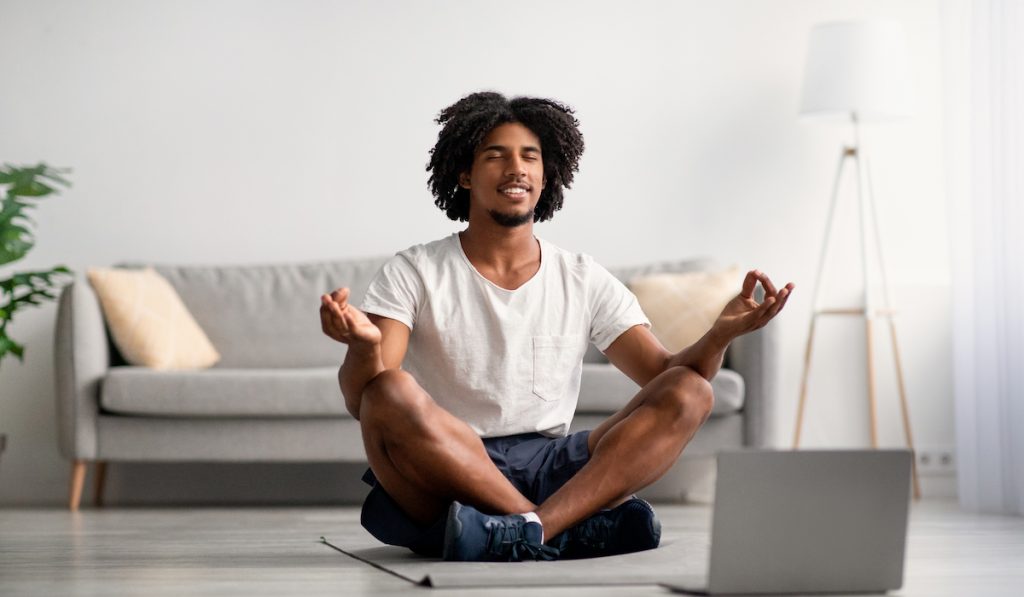The significance placed on mental wellness in our day-to-day lives has never been more at the forefront of society’s mind than it has in the last few years. Whether it is Yoga, spending a couple of hours lost in a quality novel, exercise, or the millennia-old practice of meditation, caring for the mind and emotions has become the topic of many online discussions.
The latter especially has proven to be beneficial before cognitive and physical activities, such as working out, studying, writing, running, and countless more!
So whether you are looking to brush up on a few topics or have a session of cramming so legendary it could be recorded in the Guinness world record book, meditation can absolutely benefit you!
Your ability to understand and retain what you have read, concentrate on the reading material and reduce performance pressure can all be vastly improved with a pre-study meditation.
By the end of this article, you will have more than enough information to help your study sessions be far more productive and without the mid-evening panic attack that comes with it!

Table of Contents
The Benefits of Meditation
There is a reason countless cultures, societies, and civilizations have found this ancient practice beneficial over the years. It helps people to emotionally and intellectually center themselves, removing that wandering mind that prevents attentive focus and can cause stress from worrying too much about the future, the past, or things that have yet to arise.
Many people not familiar with this popular form of self-care may not be aware of all the added benefits of giving a few minutes to yourself to focus on your breathing.
Reduced Anxiety
When it comes to mental health, nothing is more common and widespread than anxiety.
According to the ADAA (Anxiety & Depression Association of America), at least forty million people over the age of eighteen are suffering from the overwhelming affliction. This isn’t including teenagers, who often suffer the hardest with emotional wellness.
Meditation has been shown to alleviate people suffering from anxiety attacks and bouts of anxiety. In fact, according to Healthline, adults who suffer the highest amount of anxiety in a test group showed the most improvement from eight weeks of diligent meditation.
We are at a time in human evolution where mental illness, emotional instability, and stress are found throughout society.
So even on days when you don’t have to cram for a test, if you are feeling out of your depth emotionally or simply overwhelmed, give yourself ten to fifteen minutes to collect your thoughts and center your breathing.

Less Stress
It should come as no big surprise that meditation not only benefits you with reduced anxiety but it also can help manage your stress levels.
Make no mistake, stress is deadly and linked to a lot of very serious diseases and illnesses.
Reducing stress will not only increase your quality of life but will also likely lengthen it quite a bit.
There have been studies that suggest that meditation not only reduces stress but also the inflammatory effects that stress causes. There are few things in the educational world more stressful than a night spent studying, except perhaps the test itself.
To reduce the chances of burnout or a full-on breakdown, set aside some time to meditate beforehand and things will likely run far more smoothly.
Improve Attentiveness
If I can relate to anything in life, it is the wandering mind. For those of us who are afflicted with an attention span similar to most rodents, meditation can help keep your mind focused on the task at hand.
This is crucial for retaining information and getting through pages of vital research when studying, instead of thinking about why Derek was so rude to you in the fourth grade.
Studies have shown that those who meditate regularly typically outperform those that don’t in tasks that required their undivided attention. This isn’t only limited to your attention, though, and has shown that regular meditation can actually improve your memory over an eight-week timeline.
So for the sake of remembering when Columbus crossed the ocean blue, don’t skimp out your pre-study breathing.

Can Lessen Memory Loss from Advanced Age
There are few things more cruel and callous in this world than Alzheimer’s and Dementia. Combined, these diseases affect about nine million people in the United States alone, which equals about 1 in 9 for people over the age of sixty-five.
There are sadly no current cures for these horrific afflictions but scientists have noted preventative measures people can the lessen the likelihood and severity of these mentally degenerative diseases.
Several studies have found that people with memory loss or suffering from dementia have seen minor benefits from meditation. Not only that, it can benefit those who have to care for the unfortunate victims of the disease by reducing stress levels.
While not a cure for these diseases, it can help those suffering from it, if only a little.
Better Sleep
As a society, we could all benefit from a few more hours of sleep. Due to busy schedules, an almost universal dependency on caffeine, and high levels of stress and anxiety found throughout the western world, our sleep cycle tends to suffer pretty brutally. Not to mention that most people at some point throughout their life will face the debilitating struggle of insomnia.
For one or all of these reasons, meditation is vitally important for those suffering from lack of sleep.
A regular schedule of meditation has been shown to improve the quality and amount of sleep we get. This is due to its reduction of stress and anxiety, its ability to quiet our racing mind, and the calming effects many feel from the beneficial exercise.
If you are gonna be up counting imaginary livestock anyway, meditation may help get you to relax enough to fall into a deep slumber.

How To Meditate
So now that you are aware of the countless benefits of meditation, you will need to learn the basics of how to go about it.
There are several ways people meditate and while some may argue that one method is more beneficial than the other, I would imagine doing any style of meditation is better than no meditation at all. So in this article, we will be going over the steps needed to complete a concentrated meditation session.
If you find this style of meditation difficult or unsatisfying, definitely look into other forms. Meditation is a lot like restaurants, if you keep trying new ones, you will find one that you like.
- Make sure the place you meditate feels comfortable and unintrusive. If you spend the entire session wondering if you will be disturbed or watched it will ruin the purpose of meditating.
- Find a comfortable chair or lie flat with your arms relaxed at your sides or on your lap. Try to keep a decent posture but don’t fixate on it. If you find your posture slouching during the exercise, feel free to lay down.
- Focus on your breathing while meditating. Some people like to think of the number one when inhaling, and two when exhaling to help their mind from wandering.
- Allow yourself to experience what you are feeling when breathing in and out, on a sensory level as much as an emotional one.
- If you begin to wander mentally, don’t scold yourself but bring your attention back to your breathing. One of the major goals of meditation is to be calm and present, so don’t let early hiccups frustrate you.
- Do this for about five to fifteen minutes (more if you begin to enjoy it, but beginners should start small).
- Congratulations, you’ve meditated!
One thing you should make sure not to allow yourself to do is grow upset with yourself or disappointed if it doesn’t ‘click’ the first time.
There is a reason people do it daily because it takes time to get good at it and will take a lifetime to fully master. That doesn’t mean it will take years to fully experience, but for some who are especially prone to wandering thoughts, it may take a couple of tries!
Conclusion
Meditation is not a one-size-fits-all solution. What works for myself or others may not quite fit perfectly for you. So if you find concentrated meditation hard or deeply irritating, give another form a shot!
You will be spending a healthy majority of your life working on comprehending new ideas, research, and topics, meditation can give you the edge you need to properly excel at retaining this information!
